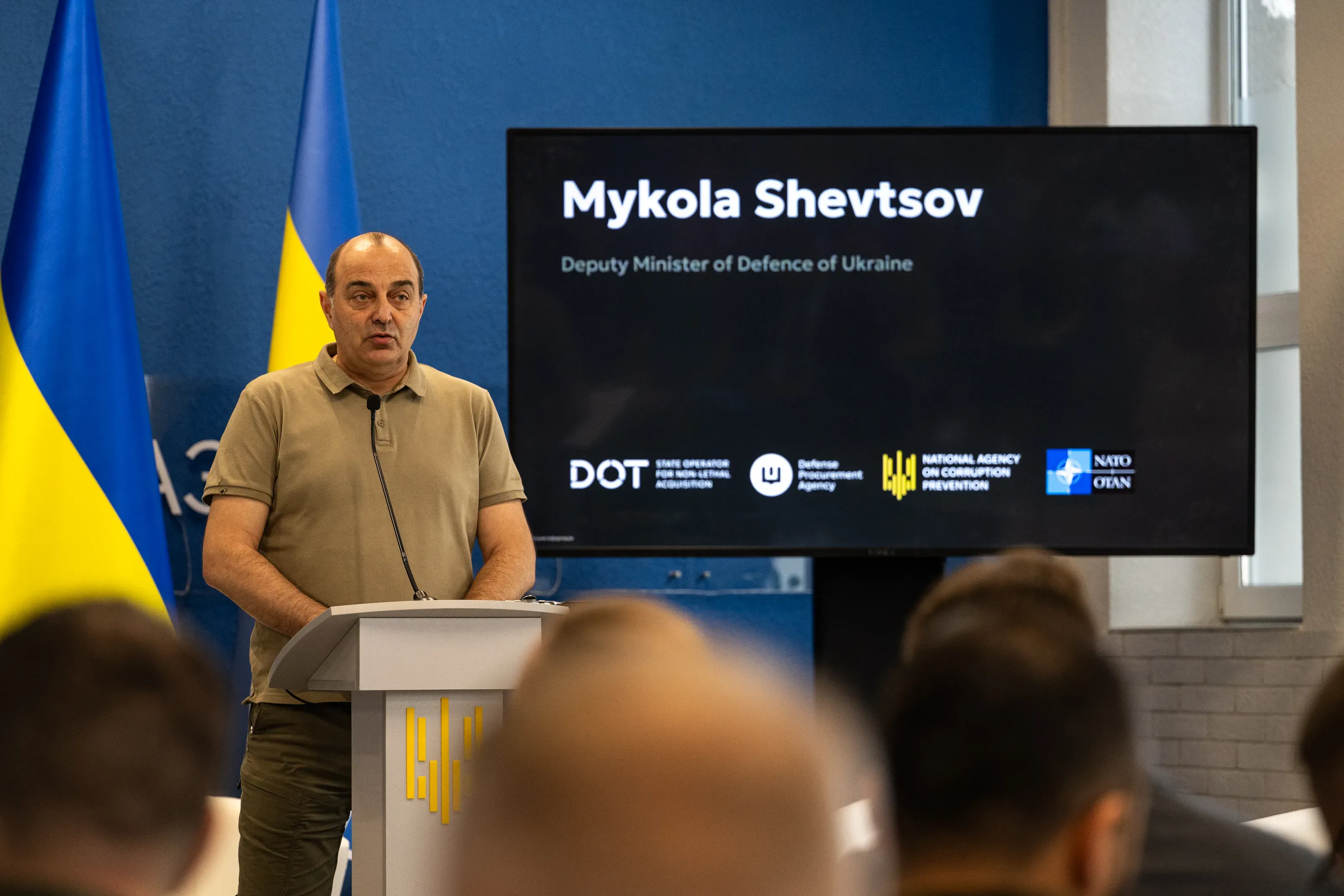MoD’s procurement agencies strengthen anti-corruption and compliance infrastructure in line with NATO recommendations
The State Operator for Non-Lethal Acquisition (DOT) and the Ministry of Defence’s Procurement Agency (DPA) are expanding their anti-corruption and compliance infrastructure in line with the recommendations of the NATO–Ukraine Strategic Defense Procurement Review.
This was announced by Dmytro Bihunets, Deputy Head of the Commission for the Reorganization of the DOT, during a presentation on the implementation of anti-corruption tools. The stakeholder presentation took place at the National Agency on Corruption Prevention.
According to Dmytro Bihunets, this year a dedicated department for monitoring procurement programmes has been established within the Defence’s Procurement Agency (DPA) to oversee the procurement process from MoD notification of need to payment and delivery of goods. In 2025, the DPA is also focusing on preventing conflicts of interest, compiling a risk registry by programme, and developing a list of restrictive measures against unscrupulous suppliers.
An important achievement of the DPA is the launch of a ‘one-stop shop’ system for market engagement, eliminating corruption risks and enabling transparent supplier verification. The agency has also introduced a clear separation of key compliance functions: internal control, internal security, and anti-corruption management – thereby preventing conflicts of competence. As of June 2025, DPA experts have verified and included 1,247 companies in the supplier registry.
The State Operator for Non-Lethal Acquisition (DOT) is also actively introducing best practices to ensure the integrity of procurement processes. DOT uses a three-lines-of-defence model, which includes establishing an effective supervisory board, management, and operational management. The agency has also begun to implement the international standard ISO 37001:2016, the leading international standard for anti-corruption management systems, fully compliant with global quality standards. Additionally, DOT has introduced a procedure to restrict the participation of companies that have failed to meet obligations or fail to meet integrity criteria. Restrictive measures have already been applied to seven companies. All DOT contracts now contain control checkpoints, serving both preventive and methodological functions to ensure proper and high-quality procurement.
Deputy Minister of Defence of Ukraine, Lieutenant General Mykola Shevtsov, stressed the importance of reforming defence procurement in the context of alignment with international standards.

“Ensuring integrity and the effectiveness of anti-corruption measures in defence procurement is not only important, it is critically important for national security, economic stability, and the international authority of any state. This is not just about compliance with formal rules, it is the foundation of trust, both among our own society and our international partners,” emphasised Lieutenant General Mykola Shevtsov.
